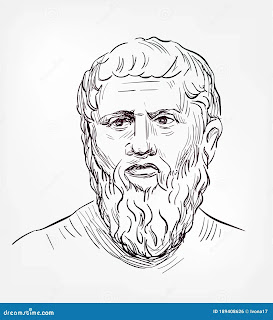In the realm of creative expression, the clash between the unrestricted freedom of artists and the boundaries of societal norms has long been a topic of debate. One of the most notable dissenters to unbridled artistic liberty was the ancient Greek philosopher Plato. In his works, particularly in "The Republic" and "Ion," Plato raised objections to the extent of freedom artists should enjoy in their creations. As we delve into Plato's objections, we'll examine how they resonate with contemporary examples of literature, movies, and other forms of art.
Plato's Objections to Artistic Liberty: A Brief Overview
Plato, a disciple of Socrates, believed that art has a powerful influence on society, shaping people's perceptions, values, and behaviors. He raised concerns about how art could potentially manipulate emotions and distort reality. He argued that the poet or artist, while portraying various characters and situations, might not be in complete control of the ethical and moral implications of their creations. This, Plato believed, could lead to the erosion of virtuous living and corrupt the minds of the audience.
The Reprehensible and the Ban-Worthy: Plato's Perspective
Plato's objections can be scrutinized through his belief that certain works of art might be morally harmful to the society and its citizens. Taking this perspective, there are indeed contemporary texts that could be subjected to Plato's objections:
- Extreme Gratuitous Violence in Movies: Certain films, by dwelling excessively on violence, gore, and sadism, can potentially desensitize viewers to the pain and suffering of others. This, according to Plato, could erode empathy and contribute to a more callous society.
- Misogynistic Content in Music: Some song lyrics and music videos perpetuate derogatory and harmful stereotypes about women. Plato's concerns about the impact of art on societal values could find resonance here, as such content might normalize harmful attitudes towards gender.
- Propaganda and Misinformation in Literature: While fiction often involves speculative and imaginative elements, it's not immune to promoting propaganda or misinformation. Plato would likely object to works that distort facts to push a certain narrative, potentially misleading readers.
- Exploitative Reality TV Shows: Plato's concerns about art affecting virtues could apply to reality TV shows that encourage manipulation, deceit, and humiliation for entertainment. These shows might influence viewers to prioritize self-interest over ethics.
- Glorification of Criminal Behavior in Literature and Film: Works that romanticize criminal behavior without proper moral exploration might clash with Plato's emphasis on ethical reflection through art.
Balancing Act: Defending Artistic Freedom
While considering Plato's objections, it's crucial to also champion artistic freedom and the value of diverse creative expression. Many artists use their work as a medium for social commentary, reflection on human nature, and catalysts for change. Some counterarguments to Plato's objections could include:
- Art as a Mirror: Art can serve as a mirror that reflects the complexities of society, providing opportunities for self-awareness and growth.
- Catharsis and Healing: Tragedies and difficult themes in art can offer catharsis and emotional release, leading to personal healing and societal enlightenment.
- Freedom of Interpretation: Art's open-ended nature allows multiple interpretations, enabling individuals to engage critically with the content and draw their own conclusions.
- Evolution of Society: Art can push societal boundaries, challenging conventions and fostering growth and transformation.

.jpg)
.jpg)
.jpg)
No comments:
Post a Comment